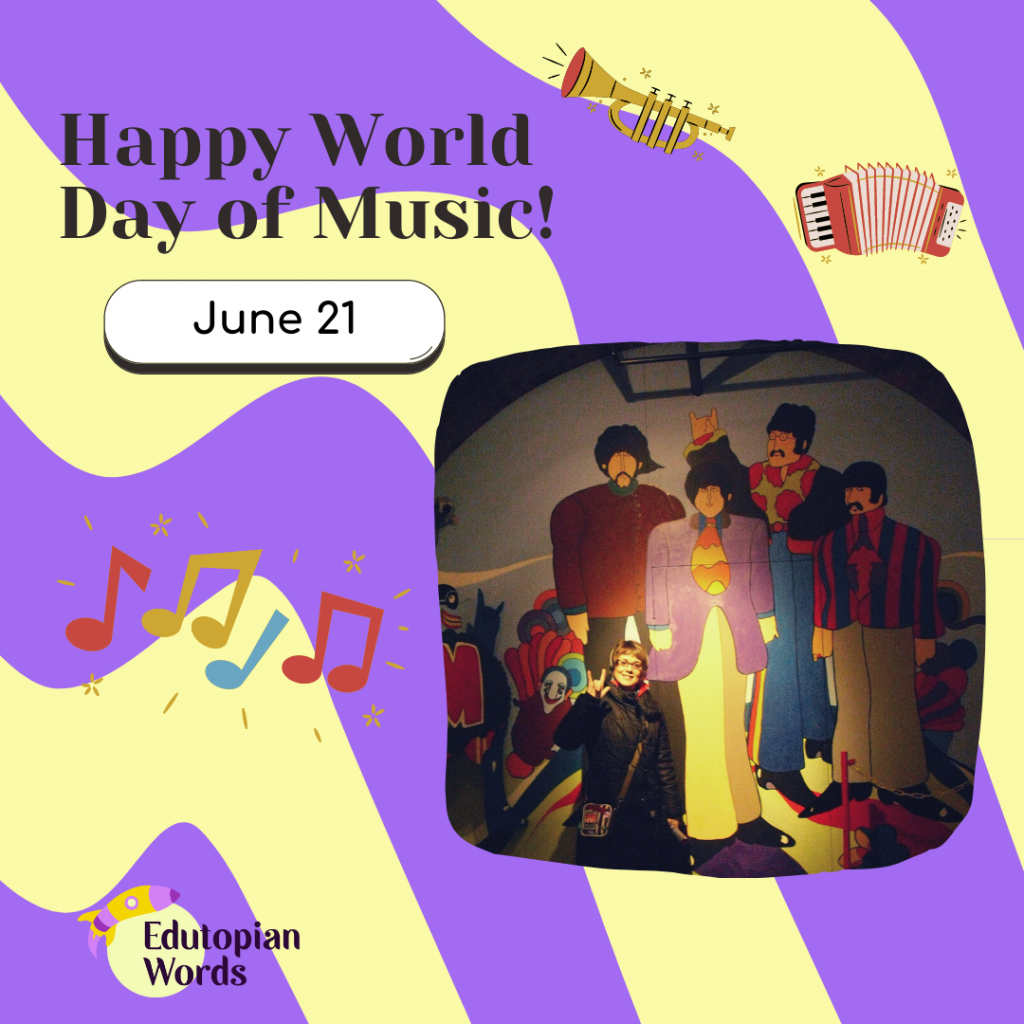Parenting continues to amaze me.
Sitting on my sofa, I see how my 4-year-old son describes what he is doing by creating a song, while dancing.
I’ve always been linked to music somehow.
I remember listening to the radio and dancing since I was very small.
And creating songs , too.
We all have an innate understanding of music.
We might not be able to play an instrument or sing, but every one of us can connect with melodies and songs and appreciate different rythms.
Besides being pleasant to listen to, we use music to express ourselves, to communicate.
And as a universal language, it transcends borders.
It brings people together and helps break barriers. And this is what World Day of Music was conceived for.
Music impacts our lives
According to research music has several positive effects on human’s body and brain.
As a way of processing emotions, it helps decrease blood pressure, heart rate and consequently, anxiety levels.
Music activates both brain’s hemispheres at the same time. And this can maximize learning and improve memory.
A Petr Janata‘s study demonstrated that music, memory and emotion are linked. He stated that “music serves as a potent trigger for retrieving memories.”
But music education can also enhance children’s skills in other areas.
It helps to develop spatial intelligence, used to solve math, art, engineering or computer problems.
In fact, music education changes the way our brain works.
Children who play an instrument are more likely to have a larger growth of neural activity, as they might be using more of their brain.
That brings me back to my 1st year of university.
We were having our English lesson when the professor asked:
“What were your degree options when deciding to go to university?”
“I wasn’t sure about studying either Translation and Interpreting or Math”, said a student.
We all laughed.
“Don’t laugh. It makes sense. The mental procedures involved when solving a math problem are quite similar to the ones operating when translating or interpreting”, replied our professor.
Math and music are linked. And when interpreting, we use and activate more parts of our brain.
Music, Math, Languages, Translation and Interpreting are all linked.
So music also benefits language professionals.
Let it be
As research shows, music benefits learning and helps to develop social and emotional skills, which has a positive impact in society, in the world.
Then, why is it so difficult to find music education in most curricula?
Ok, people need to master different topics and develop technical skills to contribute to improve society.
But the world is also in urge of emotionally healthy leaders, who have critical thinking and make decisions based on more ethical considerations. People whose actions are consciously driven by ethics and sustainability. Citizens who work for the common good. Human beings who contribute to improve and redirect the world.
And music can help.
Let the music come into your classroom!
Let music education enter our lives!
Happy 2022 World Day of Music, dear Edutopianers!

P.S. Yes, I’m a Beatles fan!

0 Comments